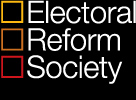Electoral Reform Society
|
|
Gwynedd: Have your say on fairer elections
Gwynedd County Council have taken the next step of their journey towards fairer elections by launching a consultation on changing the voting system at local elections.
The consultation comes following the passing of a law in the Senedd which allows Welsh councils to choose how their councillors are elected, enabling councils to choose between First Past the Post, and the tried-and-tested Single Transferable Vote. Now, over the next six weeks, you have the chance to have your say on this potential change.
So, what would this change mean and why is it needed?
Currently, you elect your councillors in the same way you elect your MP – by using the First Past the Post system. Whereby, the candidate (or candidates in multi-member wards) with the most votes gets to represent your area regardless of whether they have a majority of votes or not.
The problem with this system is that it does a poor job at translating how we vote into how we are represented at a local level. It is possible for a party to receive a large percentage of votes but not get the same representation in terms of seats – or vice versa. Leaving swathes of votes underrepresented.
At the last local elections in 2022 we saw this first hand. In Cardiff, for example, the Plaid Cymru/Green coalition received 17% of the vote but gained just 2% of the seats available. Meanwhile, Labour gained almost 70% of the seats on less than 45% of the vote. On the other hand, in Ynys Môn, the Conservative party received 19% of votes but did not gain a single seat. So, this is an issue that affects parties from across the political spectrum right across Wales.
In addition to this, the current system can leave parts of the electorate with no choice at all. Here in Gwynedd, a staggering 28 of the council’s seats (41% of all the seats available) were uncontested at the last election. This means that there was only one candidate on the ballot paper for over 30,000 voters. Surely this is an unacceptable situation to have in a democracy?
To tackle these issues the proposed change would swap this system with the Single Transferable Vote (STV) – which is already used in Scotland and Northern Ireland. In this system, you’ll be part of a bigger constituency and elect 4 or 5 councillors.
On the ballot paper you’ll be able to rank candidates; putting your favourite as number one, your second favourite number two, and so on for as many candidates as you like. This then tells the people counting to move your vote if your favourite candidate has enough votes already or stands no chance of winning.
The resulting distribution of seats will represent the diversity of views in your area much better and there’ll be a far more proportional relationship between votes and seats – and we know this because we have been able to see it in action in Scotland.
Scotland’s experience with STV
Scotland has used STV at local elections since 2007 and has seen a huge difference in the outcome of their elections. Parties now receive roughly the same percentage of seats as votes and there is far less chance of parties gaining power with ‘unearned majorities’, where parties receive over 50% of the seats with less than 50% of the vote.
The chance of there being uncontested seats has also reduced too. In the 2022 election, there were just 18 uncontested seats (1.5% of the total) – meaning there were more uncontested seats in Gwynedd alone than the entirety of Scotland! Furthermore, at the 2007 and 2012 elections there were no uncontested seats whatsoever.
Beyond just numbers, percentages and representation; having a more proportional voting system has a real difference in the way parties govern too. STV makes it harder for parties to govern on their own unless they get over 50% of the vote. As a result, politicians often need to look for support amongst other parties, which results in a more collaborative and pragmatic approach to government.
So, what can you do?
If you’re a Gwynedd resident reading this and despairing at the unfairness of elections in the county, the great news is that over the next few weeks you have the chance to have your say on changing the voting system at local elections.
Gwynedd County Council are currently holding a consultation on the issue and are looking for thoughts and comments from residents on the proposed change. For the change to happen two-thirds of councillors will need to vote for it, so it’s absolutely vital that people fill out the consultation to show councillors that there’s a real appetite for this change.
To have your say, complete the consultation here:
Original article link: https://www.electoral-reform.org.uk/gwynedd-have-your-say-on-fairer-elections/
|
Building a Better Democracy |
Tweets by electoralreform | ||||||
|
|||||||



